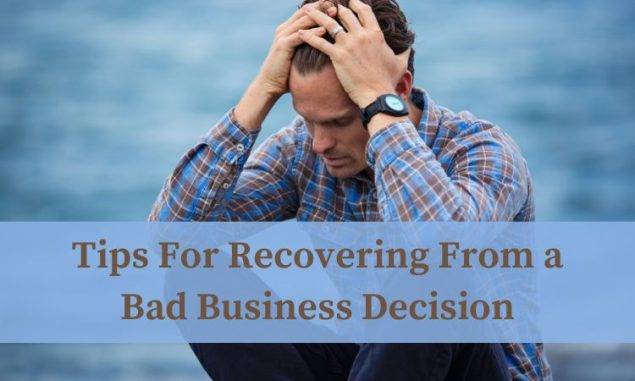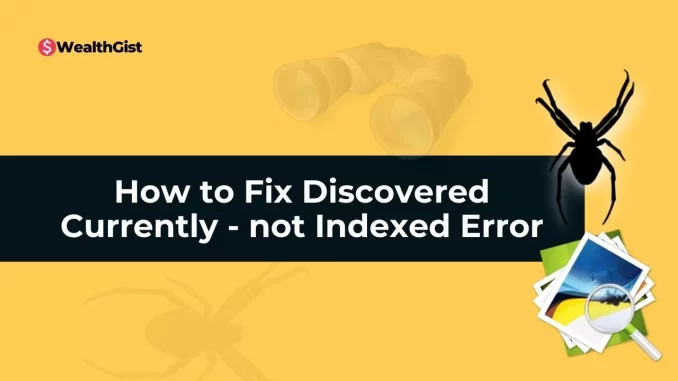The world is changing, and so is the way we approach business and the environment. Read about Sustainability and insurance and how it can help reduce environmental risks.
As environmental risks grow, so does the significance of sustainability and insurance.
Insurance plays a vital role in promoting sustainability practices and mitigating environmental risks.
In this blog post, we’ll look at how insurance affects sustainable business practices.
As well as the rise of green insurance products, and how partnerships and consumer education are spiriting systemic progress.
Let’s get into it.
The Growing Significance of Environmental Risks
Environmental risks are on the rise, and they’re not going anywhere.
From natural disasters like hurricanes and wildfires to man-made disasters like oil spills, the impact of these events can be overwhelming.
However, Insurance companies are increasingly aware of these risks and are working to mitigate them.
As natural disasters become more severe, the financial and social costs increase, thereby challenging communities and economies interchangeably.
The insurance industry, with its finger on the pulse of risk management, may have to adjust to these changes, then recognize the growing significance of environmental risks and respond with innovative approaches.
Trending Insurance Issues
- 7 Rider Benefits to Add to Your Life Insurance Plan
- Reasons Why Doctors Need Own Occupation Disability Insurance
- Budget-Friendly Insurance Options: Protecting What Matters Most
- Does Life Insurance Cover Suicide?
- Artificial Intelligence and Insurance: How AI is transforming the insurance industry
- Climate Change and Insurance: Rising Risks and Evolving Coverage
- Cyber Insurance: Types, Benefits, Risks, & Choosing the Right Policy
- Pandemic Insurance: Protecting Your Business and Personal Assets in a Post-COVID World
- What are the Features of the Best Term Plan Insurance in India?
- 5 Essential Health Insurance Tips for Self-Employed Workers
- What To Expect From an Insurance Transcription Service
Why Insurance Matters for Sustainability
Insurance is more than a safety net; it’s a tool for transformation.
It is not just about protecting assets; it’s also about promoting sustainable practices
Insurers offer incentives for companies to embrace new initiatives towards a greener future.
This not only benefits the environment but also reduces risks for insurers and their clients.
Since insurers must protect against risks and also promote practices that ensure a viable future.
How Insurance Drives Sustainable Business Practices
The insurance sector influences to shapes sustainable business practices.
They recognize the importance of sustainability and are taking steps to encourage it.
This includes offering discounts to companies that embrace green practices, through reducing energy consumption or using renewable energy sources.
With these, insurance companies can help reduce environmental risks and promote a more sustainable future.
Sustainable Insurance Uptake Accelerating
As the tide of public opinion turns towards sustainability, the year for sustainable insurance increases.
The demand for sustainable insurance products is growing, and insurers are responding.
Green insurance products, such as those that cover renewable energy projects or green buildings, are becoming increasingly popular.
As more companies embrace sustainable practices, the demand for these products is expected to continue to grow.
Insurance Encourages Corporate Responsibility
Insurance companies are not just passive observers; they’re actively encouraging corporate responsibility. They offer incentives for sustainable practices and are helping to shift the focus from short-term profits to long-term sustainability.
This shift can lead to a more responsible business environment that benefits everyone.
This way, they encourage businesses to consider the environmental impact of their operations and to act responsibly.
How Insurance Mitigates Environmental Risks
Insurance stands against environmental risks since it offers coverage that not only aids recovery but also encourages risk mitigation.
Including coverage for events like floods, wildfires, and other natural disasters.
This way, they can help individuals and businesses recover from these events to help reduce the financial impact of these events as well as encourage more responsible environmental practices.
Enabling Climate Change Adaptation and Biodiversity
In the face of climate change, adaptation is key.
Insurance can also help enable climate change adaptation and biodiversity conservation.
Through offering coverage for projects that help reduce the impacts of climate change
This includes projects that help protect forests, reduce greenhouse gas emissions, and promote sustainable agriculture.
These projects are designed to protect biodiversity and support adaptation efforts against unpredictable climate change
Advancing Sustainable Development Goals
Insurance companies are increasingly recognizing their role in increasing the United Nations’ Sustainable Development Goals (SDGs).
From reducing carbon emissions to promoting sustainable agriculture, insurance companies are working to align their business practices with these goals.
This will not only help promote sustainability but also show commitment to a more responsible business environment.
The Rise of Green Insurance Products
Green insurance products offer coverage that not only protects but also promotes environmental well-being.
As the demand for sustainable insurance products grows, so does the number of green insurance products available.
From renewable energy insurance to green building coverage, there are now many options for those looking to make a more sustainable choice.
These products represent a growing niche in the insurance market, responding to the demand for eco-friendly options
Partnerships Spiriting Systemic Progress
Insurance companies are partnering with other organizations to enable systemic progress.
This includes partnerships with environmental groups, governments, and other businesses to promote more sustainable practices.
This will help speed up the transition to a more sustainable future.
Educating Consumers Powers Sustainable Transition
Insurance companies are also working to educate consumers about the importance of sustainability.
This includes providing resources and tools to help individuals and businesses make more sustainable choices.
Top 10 Sustainability and Insurance Case Studies
These are only a few examples of sustainability and insurance case studies that are continuously evolving.
| Company | Sustainable Initiative | Additional Information |
| AXA | AXA launched a microinsurance product for farmers practicing sustainable agriculture, offering lower premiums and additional coverage for organic crops. This incentivized sustainable practices and improved risk management for both farmers and AXA. | Lower premiums for sustainable practices Extra coverage for organic crops Promote sustainable agriculture in France |
| Zurich | Zurich invests $2.4 billion in clean energy infrastructure between 2016 and 2020, to support the development of wind and solar farms globally. This investment not only promoted sustainability but also generated positive financial returns. | Invested in renewable energy Support for wind and solar farm development globally Positive financial returns from investment |
| Swiss Re | Swiss Re partnered with the World Food Programme to develop a parametric insurance solution for Malawian farmers. This insurance provided payouts based on rainfall data, protecting farmers from drought-related losses and promoting food security. | Parametric insurance for droughts in Malawi Payouts based on rainfall data Protection from drought-related losses Promotion of food security |
| SCOR | Lloyd’s launched a platform that provides data and analytics on ocean risks, such as rising sea levels and marine pollution. This helps businesses manage their ocean-related risks and promotes sustainable ocean practices. | Ocean risk platform Discounts for sustainable home features like solar panels and water-efficient appliances Reduction of water and energy-related risks for SCOR |
| Allianz | Allianz developed a sustainability assessment tool for its suppliers, evaluating their environmental and social practices. This helps suppliers to improve their sustainability performance and minimize risk for Allianz. | Sustainable supply chain risk management Sustainability assessment tool for suppliers Encouragement for suppliers to improve sustainability performance |
| Chubb | Chubb launched a policy that explicitly covers financial losses from climate-related disruptions like natural disasters. This provided protection for businesses and increased awareness of climate risks. | Sustainable business interruption insurance Coverage for financial losses from climate-related disruptions Increased awareness of climate risks |
| The Nature Conservancy and Munich Re | The Nature Conservancy and Munich Re partnered to develop a risk-sharing mechanism for coastal restoration projects. This initiative reduces flood risks for communities while restoring natural ecosystems. | Restoring coastal ecosystems Risk-sharing mechanism for coastal restoration projects Reduction of flood risks for communities Restoration of natural ecosystems |
| Lloyd’s | AIG invested in green bonds issued by companies financing renewable energy projects and sustainable infrastructure. This investment gave AIG attractive returns while promoting the development of sustainable projects. | Investing in green bonds Provision of data and analytics on ocean risks Assist in managing ocean-related risks Promote sustainable ocean practices |
| AIG | AIG invested in green bonds issued by companies financing renewable energy projects and sustainable infrastructure. This investment supported the development of sustainable projects and offered attractive returns for AIG. | Investing in green bonds Investment in green bonds for financing renewable energy projects and sustainable infrastructure Support for sustainable projects Attractive returns for AIG |
| MICRO Insurance Company | MICRO Insurance launched a climate resilience program for farmers in India, providing crop insurance, weather warnings, and access to agricultural resources. This program helped farmers adapt to climate change and reduce their vulnerability to weather-related risks. | Climate Resilience Program in India |
Trending Insurance Issues
- 7 Rider Benefits to Add to Your Life Insurance Plan
- Reasons Why Doctors Need Own Occupation Disability Insurance
- Budget-Friendly Insurance Options: Protecting What Matters Most
- Does Life Insurance Cover Suicide?
- Artificial Intelligence and Insurance: How AI is transforming the insurance industry
- Climate Change and Insurance: Rising Risks and Evolving Coverage
- Cyber Insurance: Types, Benefits, Risks, & Choosing the Right Policy
- Pandemic Insurance: Protecting Your Business and Personal Assets in a Post-COVID World
- What are the Features of the Best Term Plan Insurance in India?
- 5 Essential Health Insurance Tips for Self-Employed Workers
- What To Expect From an Insurance Transcription Service
Key Takeaways
In conclusion, insurance helps to promote sustainability practices and reduce environmental risks.
From incentivizing green initiatives and offering coverage for climate change adaptation projects, they are actively contributing to a more sustainable future.
As the demand for sustainable insurance products grows, insurers will continue to find new ways to promote more responsible environmental practices.
We hope you enjoyed reading this blog post and learned something new and useful.
If you have any questions, comments, or feedback, please feel free to leave them below. We would love to hear from you and engage with you.
Thank you for your time and attention.









